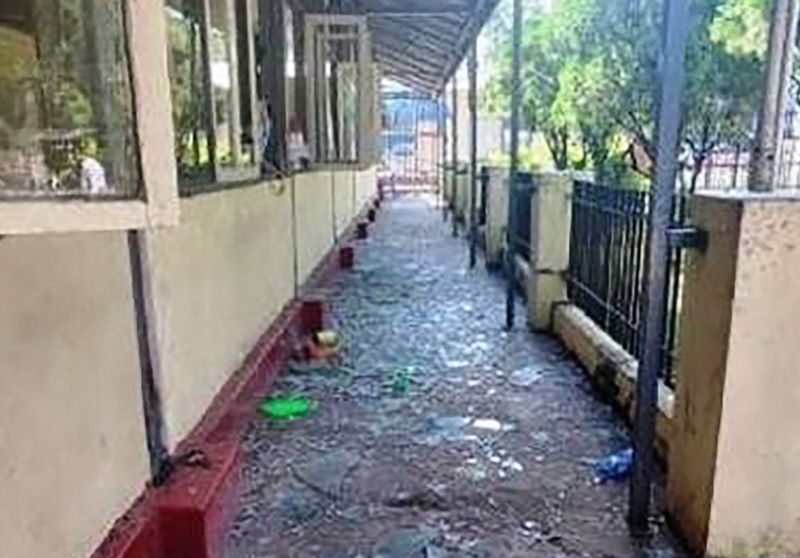[ad_1]
BANGKOK — A bombing on Wednesday near the front gate of Myanmar’s main prison for political detainees killed at least eight people, including visitors and prison personnel, local media and the government said.
Five people who were delivering parcels to prisoners and three prison staff were killed when two bombs exploded around 9:40 a.m., News of Myanmar, an online news service sympathetic to the country’s military government, reported on the Telegram social media platform. The blasts occurred inside and outside of the parcel reception office near the main iron gate of Insein Prison in Yangon, the country’s biggest city.
The military’s information office confirmed in a statement that five visitors, including a 10-year-old girl, and three prison staff were killed, and that an unexploded bomb had also been found in a parcel. It said 13 visitors, including a 9-year-old boy, and five prison personnel were being treated for injuries at Insein township hospital.
The prison has been notorious for decades for holding political prisoners under various military governments. Families of prisoners are allowed to bring parcels with items such as food, clothing and medicine.
Several resistance groups engaged in struggle against the military government, including the Yangon Revolution Force, Yangon Urban Guerrillas and the General Strike Committee, quickly released statements condemning the attacks for hurting civilians.
However, a little-known anti-government group later posted a statement on Telegram saying it had carried out the attack. The Special Task Agency of Burma said it launched the mission because of continued oppression of revolutionary fighters by prison personnel. It said the civilian casualties were caused by indiscriminate gunfire by security forces after the blasts.
Claims of responsibility, especially in cases where civilians are killed, are often controversial because while many anti-government groups operate autonomously and with little discipline or training, there is suspicion that some attacks are carried out by provocateurs working for the government to discredit the resistance movement.
Myanmar has been in turmoil since the military seized power from the elected civilian government of Aung San Suu Kyi last year, triggering nationwide peaceful protests that security forces suppressed with deadly force. The repression led to widespread armed resistance, which has since turned into what some U.N. experts have characterized as civil war.
About 2,367 civilians have died in a crackdown on resistance, according to detailed lists compiled by the Assistance Association for Political Prisoners, a rights watchdog group.
Bombings and shootings in Myanmar cities and armed clashes in the countryside occur daily. Urban guerrillas opposed to military rule carry out targeted killings of people associated with the military and bombings of establishments with official ties.
Photos of Wednesday’s bombings distributed by the military’s information office show items scattered by the blasts and blood on the floor inside the building where parcels for prisoners are received.
A resident who lives near the prison’s entrance gate told The Associated Press by phone that he heard about 10 gunshots after hearing the two explosions but did not know if they caused any casualties.
A lawyer who went to the prison about an hour after the blasts said the areas for arriving visitors and receiving parcels were empty when he arrived, and extra security had been deployed in front of the prison’s main gate. He said he was told that hearings at the court inside the prison had been postponed.
The resident and the lawyer spoke on condition of anonymity because of fear of being targeted by security forces for speaking to the media.

